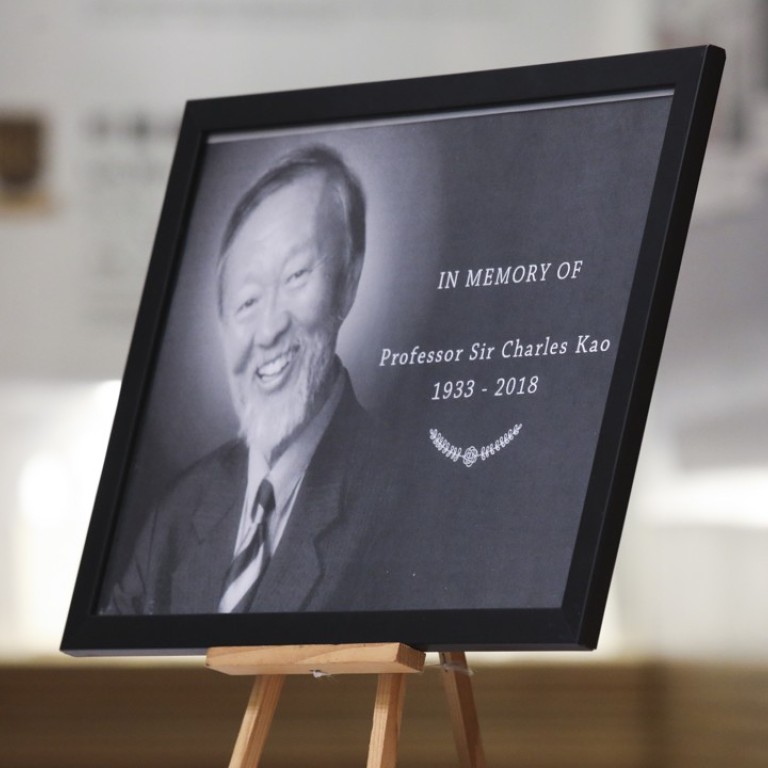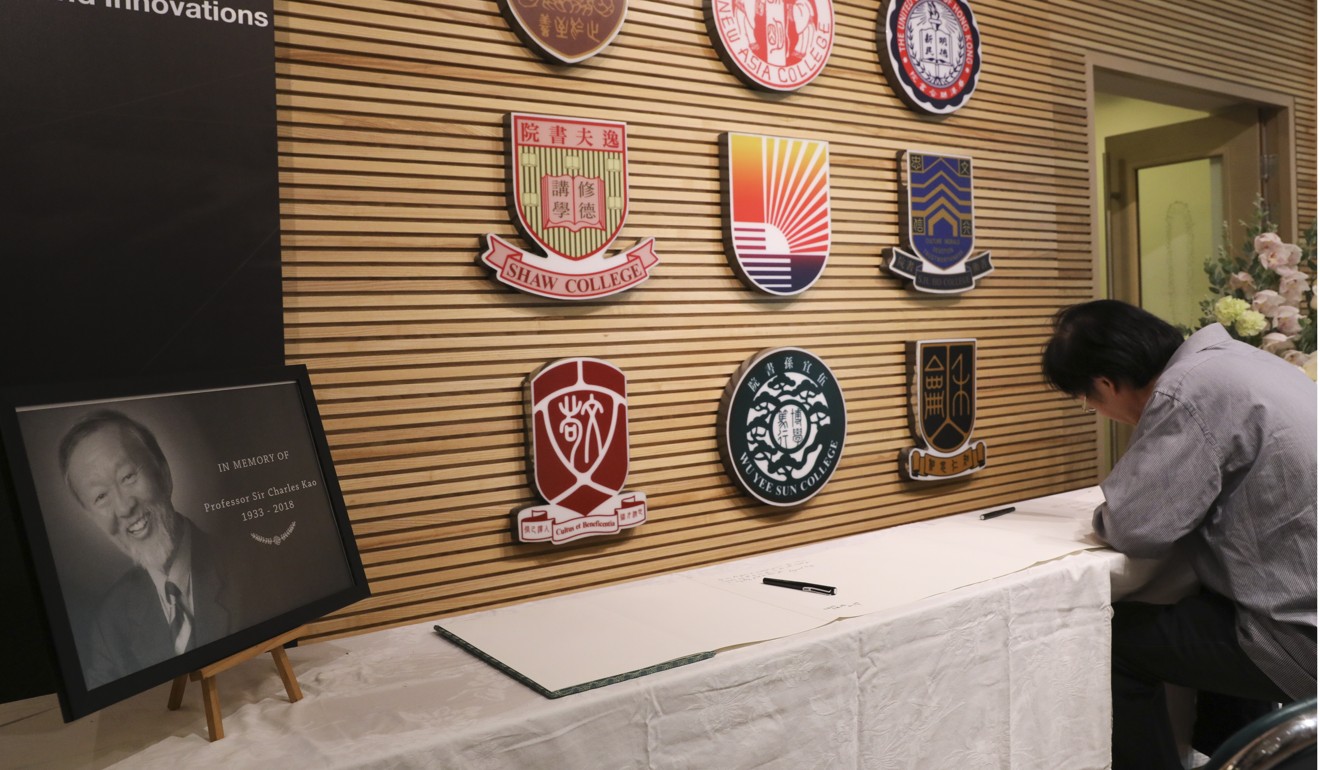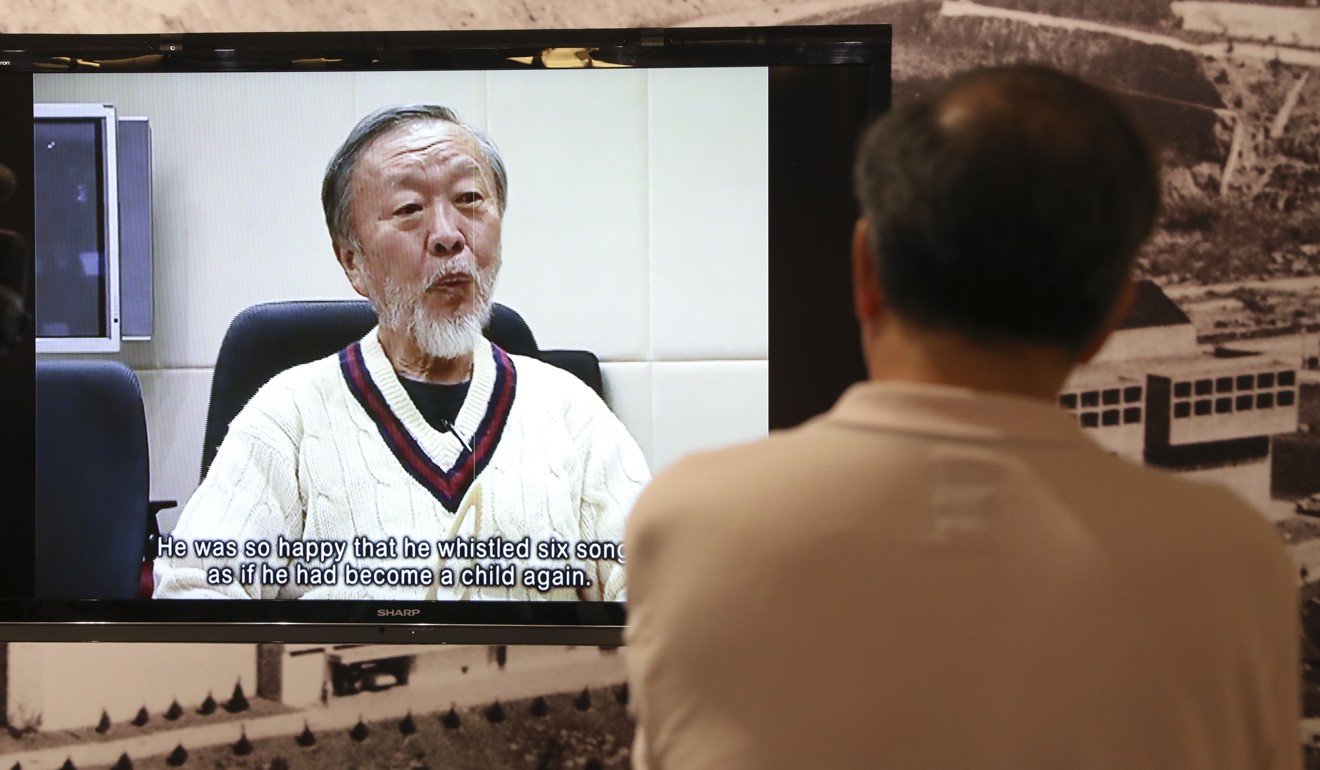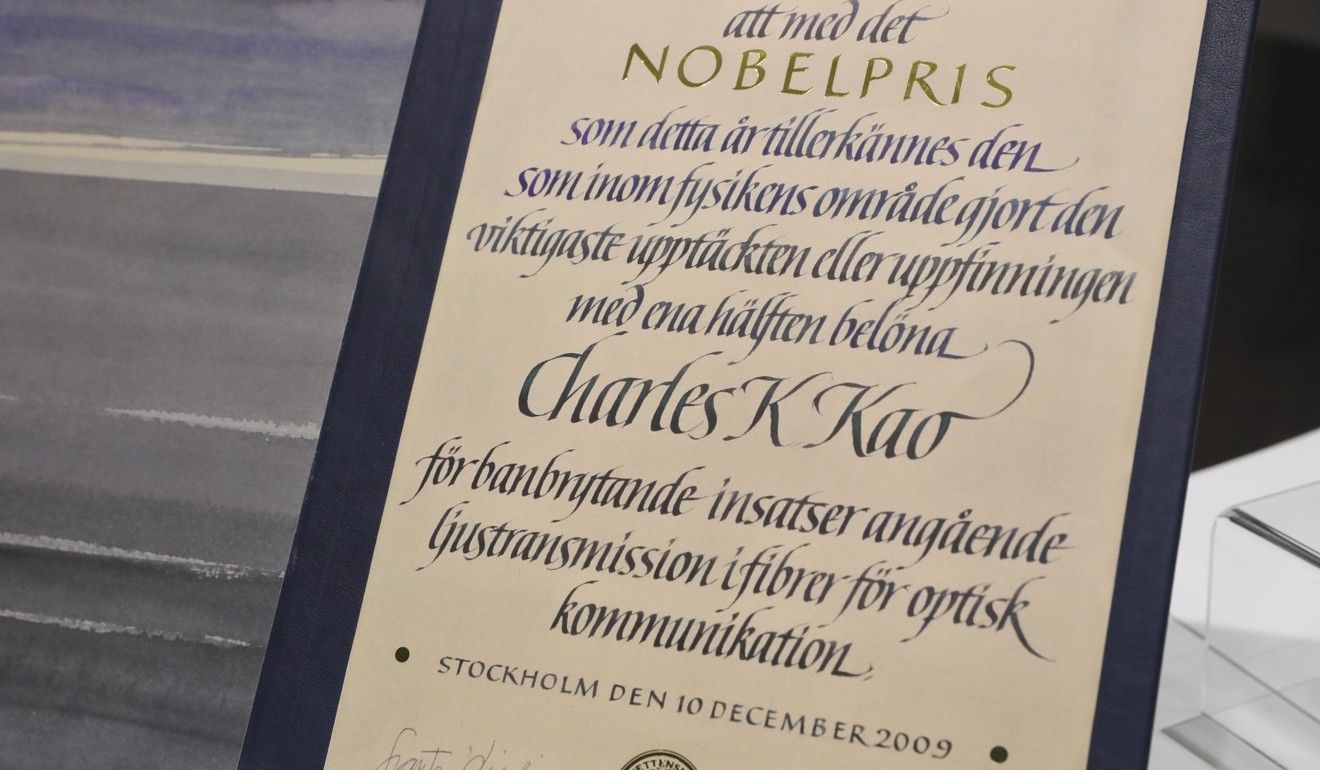
‘He made you feel the great man in the room was you’: colleagues and friends reflect on modesty and genius of Nobel laureate Professor Charles Kao Kuen
Chinese University of Hong Kong committee meets to discuss funeral arrangements as tributes continue to flow for ‘father of fibre optics’
A committee met at the Chinese University of Hong Kong on Monday to discuss funeral arrangements for physics Nobel laureate and former vice chancellor Professor Charles Kao Kuen, as tributes continued to pour in for the late scientist, who died on Sunday at the age of 84.
Committee members said they would follow the wishes of Kao’s wife of 60 years, Gwen Kao Wong May-wan.
Chemistry professor Jimmy Yu Chai-mei said Gwen Kao had shared with him several ideas for a memorial service.
“When a person as important and internationally renowned as Kao passes away, lots of careful planning is needed,” said Yu, a close friend of the Kaos.

Charles Kao, whose seminal work on fibre optics laid the groundwork for the development of modern communications, was on Monday remembered by colleagues and students as a visionary and amiable man who contributed immensely to the city’s science and technology industry.
Kao battled Alzheimer’s for 16 years and had been in hospital for more than a month with pneumonia until his death, according to Yu.
Hong Kong mourns passing of Nobel Prize winner and father of fibre optics, Charles Kao, 84
“He had several fevers before. So when he got a temperature again this time, we thought he would recover and return home soon,” Yu said. “We didn’t expect it to be so severe. But in the end, after examinations by many experts, we had to move him to a hospice.”
The Charles K. Kao Foundation for Alzheimer’s Disease, founded in 2010 by the Kaos and chaired by Gwen Kao, has yet to disclose details of the funeral.

“As one of the last wishes of Professor Kao, our foundation will keep up our work in supporting people with Alzheimer’s and their families,” Gwen Kao said in a statement on Sunday.
A memorial corner set up at Chinese University on Monday saw a constant flow of professors, students and other admirers come to leave their condolences.
Flowers and a picture of Kao were placed on a long white table at the University Gallery along with a condolence book.
Charles Kao Kuen's wife: we must banish stigma of Alzheimer’s
Born in Shanghai in 1934, Kao became known as the “father of fibre optics” for his groundbreaking achievements involving the transmission of light in fibres for optical communication.
He won a joint Nobel Prize in Physics in 2009, the Faraday Medal in 1989, and the Alexander Graham Bell Medal in 1985.
“Without Professor Kao’s work, we wouldn’t have the internet as it is today,” said Professor Kenneth Young, a theoretical physicist who chairs the council which awards Hong Kong’s Shaw Prize.
Kao’s most important academic research was published in the early 1960s, and it took the world more than three decades to recognise his contributions.

Young, one of four Chinese University scholars who helped Gwen Kao draft Kao’s Nobel speech, said it was never too late to do so.
“To transform Kao’s research breakthrough into an industry that made an impact on everyone’s life, three major developments were indispensable, and these took time,” said Young, who knew Kao for more than 40 years.
Easy-to-control lasers, the development of computer sciences, and the refinement of high-purity glass all had to come into existence, he said.
“Kao was far ahead of his time,” Young said.
Yu said transmission of electronic information had previously relied on copper wire, which was “heavy and low in capacity”.
A Tribute to Professor Charles Kao – ‘Father of Fibre Optics’
“Imagine how much it would have cost to build a network across the Pacific with copper,” Yu said. “Fibre optics solved the problem and shaped today’s world.”
Kao was a keen advocate of Hong Kong’s science and technology industry. He was a member of the first Commission on Innovation and Technology and a founding director of the Hong Kong Science and Technology Park, opened in 2001.
In 2007 a landmark auditorium in the science park, dubbed the “Golden Egg” after its appearance, was named after him.
Young said he wanted the world to remember “a real gentleman and scholar, in the sense of Chinese tradition”, and “a really good person with a kind soul”.
“He was never self-important. He exercised extreme modesty, considering his status,” Young said.
That sentiment was echoed by information engineering professor Wong Wing-shing.
Another of the four drafters of Kao’s Nobel address, Wong said: “When he was with juniors and students, he was amiable and modest. He always wore a smile on his face. No matter how difficult the situation, he would always stay positive, reflecting a high moral standard.”
Yu recalled Kao inviting all new teachers to a tea gathering at his home when the young Yu first joined the university in 1995.
“He didn’t brag about himself at all,” he said.
“Instead, he asked about my research interests and encouraged me, saying my work would be needed to solve lots of sustainability problems in the future.
“He could make you feel that the great man in the room was you instead of him.”


